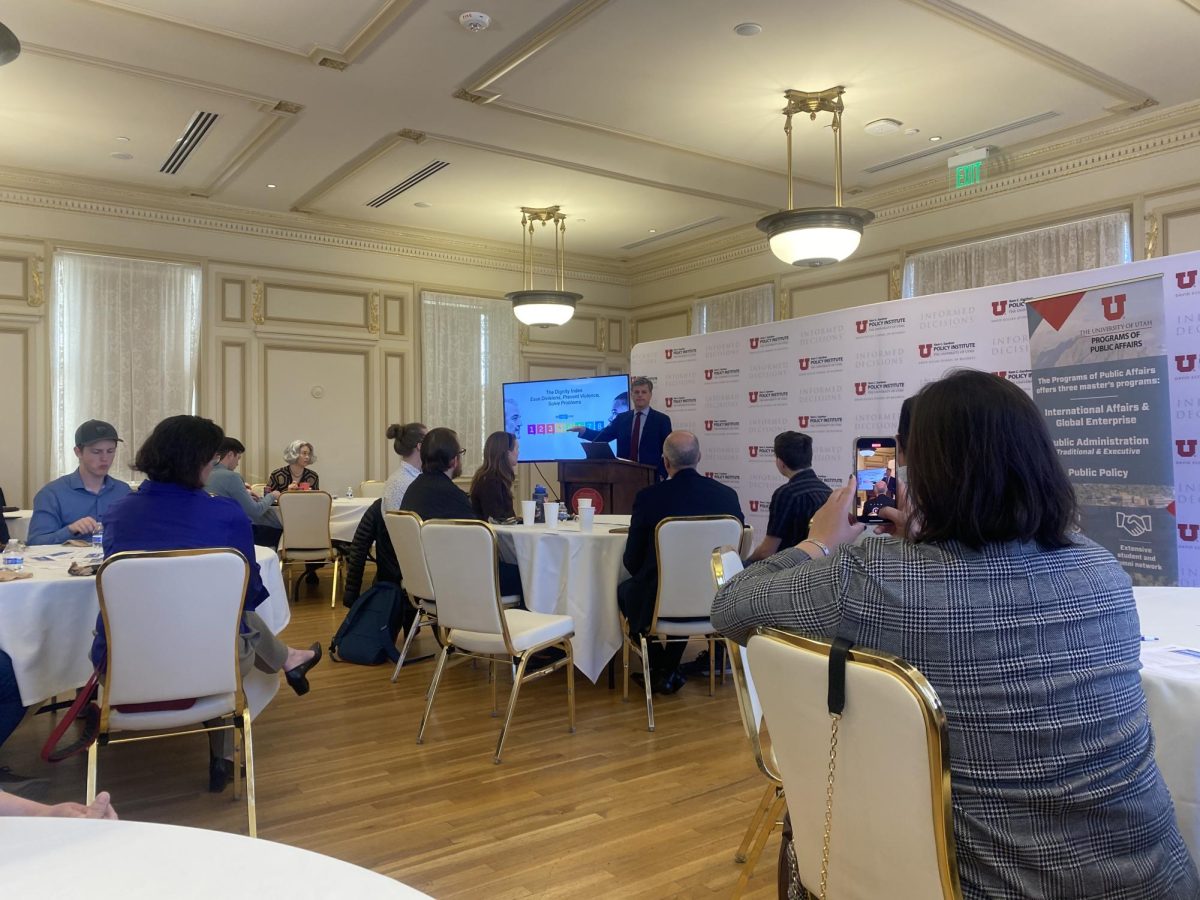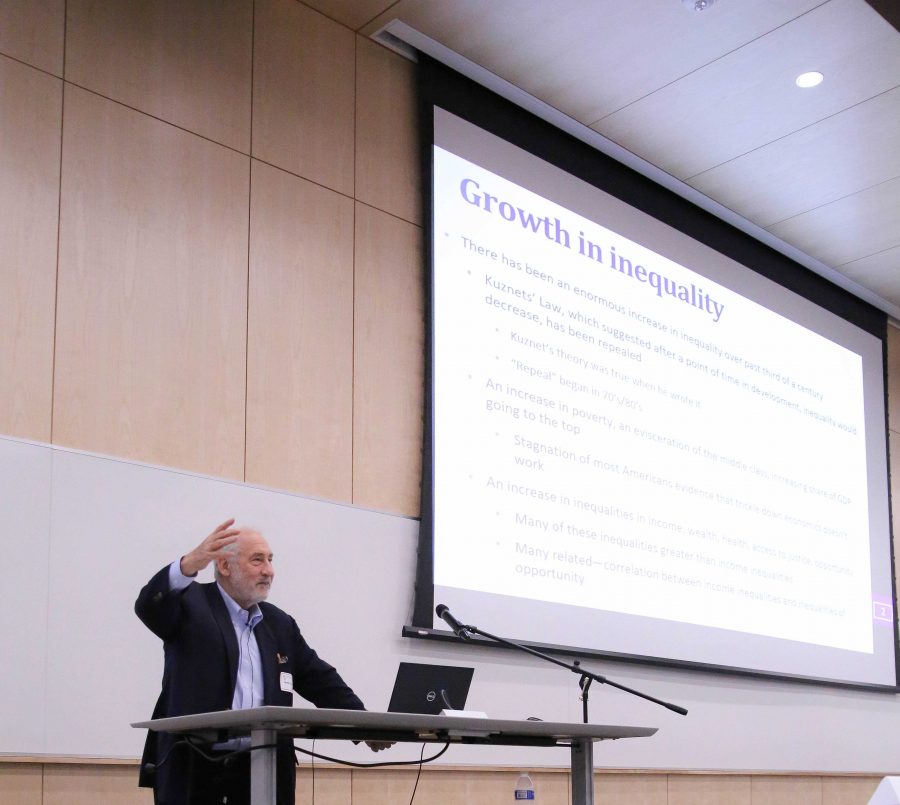Joseph E. Stiglitz, a world-renowned economist and recipient of the Nobel Memorial Prize in Economic Sciences and the John Bates Clark Medal, spoke on Sep. 27 at The Great Polarization, a conference hosted by the U’s economics department. Stiglitz is currently a professor at Columbia University as well as the co-chair of the High-Level Expert Group on the Measurement of Economic Performance and Social Progress at the OECD and the Chief Economist of the Roosevelt Institute.
The conference focused on topics of growing inequality in the U.S. and the large gap or “polarization” that exists between the highest-earning “one percent” and the lowest-earning majority of the population. Stiglitz, the keynote speaker, opened the three-day event that included talks and panel discussions from other leading academics and researchers in the field.
Stiglitz’s talk was held in a lecture hall in the U’s new Gardner Commons building. The event was so popular that capacity for the hall was reached and an overflow room had to be set up so that the full audience — about 430 people — could attend.
Data from Stiglitz’s presentation evidenced the fallacy of trickle-down economics, the belief that wealth flows from the top down. He spoke about how this false notion has shaped policy and influenced society, and not just from an economic standpoint. The consequences of inequality, according to Stiglitz, are far reaching with the most obvious implications being extreme poverty, lack of education and an overall health decline in the U.S. population. “We are the only advanced country that does not recognize the right to health care and as a result, we are the only country in which life expectancy is falling,” Stiglitz said. Inequality is also a culprit for the increased suicide and drug overdose rates that the nation has seen, according to Stiglitz.
Gunnar Thorderson, a senior at the U double-majoring in Economics and Finance, attended the lecture. He says that while he agrees with some of Stiglitz’s points, he believes that the issue has more to do with a skills gap than a wage gap. “Rising globalization has caused so many people to lose their jobs, lose their positive outlook on life because they feel like they have absolutely nothing going for them,” Thorderson said, adding that “what Stiglitz would like you to believe is that these people’s problems are a result of the super rich just having more money. What I think is that the real issue is that we aren’t addressing the skills gap.”
Thorderson believes that the skills gap could be addressed by providing low-cost training to individuals who have lost their jobs due to changes in the industry resulting from globalization. He also hopes to see some regulations and barriers lifted so that people who do have training in areas such as construction can access jobs without “paying $1,500 to keep up a state license.”
Holly Sue Hatfield is in her fourth year as a doctoral student in the U’s economics department and was a logistics coordinator for the conference. Hatfield stated that she was very interested in helping out with the conference and becoming involved. In line with the theme of the conference, her research focuses on the consequences of a decrease in household sizes. “Household size has gone down significantly. One in three households in the U.S. are just people living alone,” Hatfield said, adding that this is problematic because “if we are depending on the market for everything all the time and the market fails, then we don’t have a fail-safe, we don’t have a backup.”
Hatfield hopes to see changes occur in the ways that we view caring for dependent people such as elders, children, disabled people or people who can’t work. She hopes these views can also extend to caring for people exiting the prison system and trying to reintegrate into society. “We need to rethink how we take care of people in general. We used to do it in our homes more but now suicide rates are going up, drug overdoses are going up,” said Hatfield, who hopes that a shift in the way we view caregiving will also help create “more rewarding careers” for people who want to work as caregivers.
















